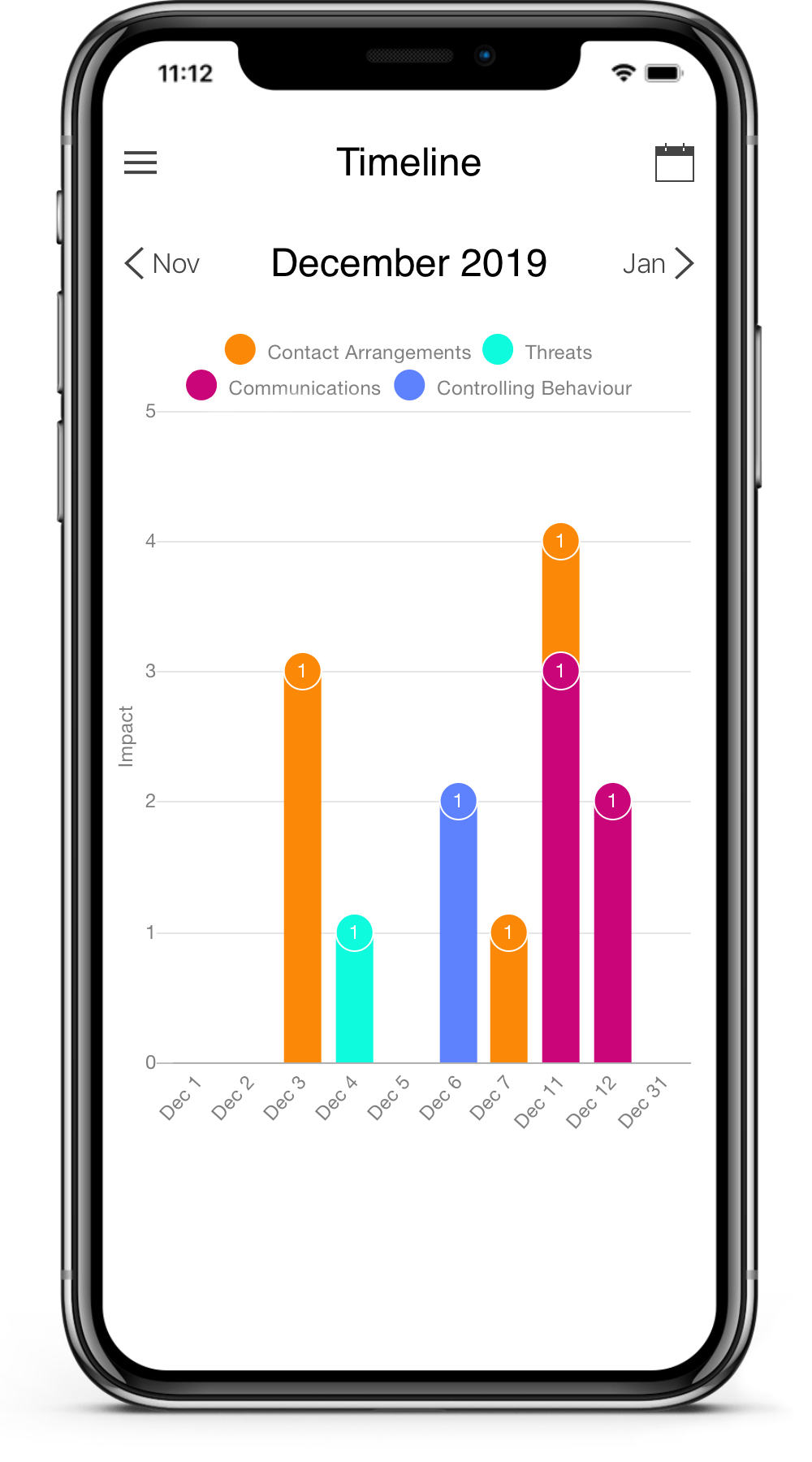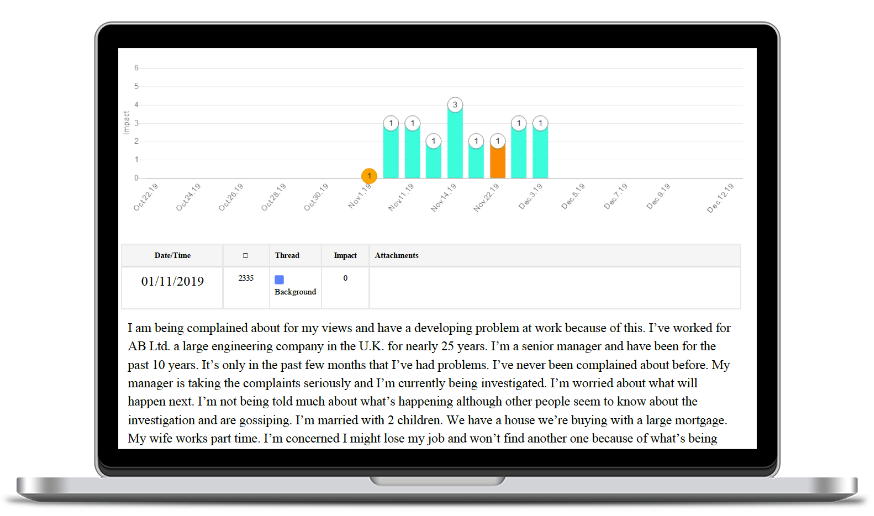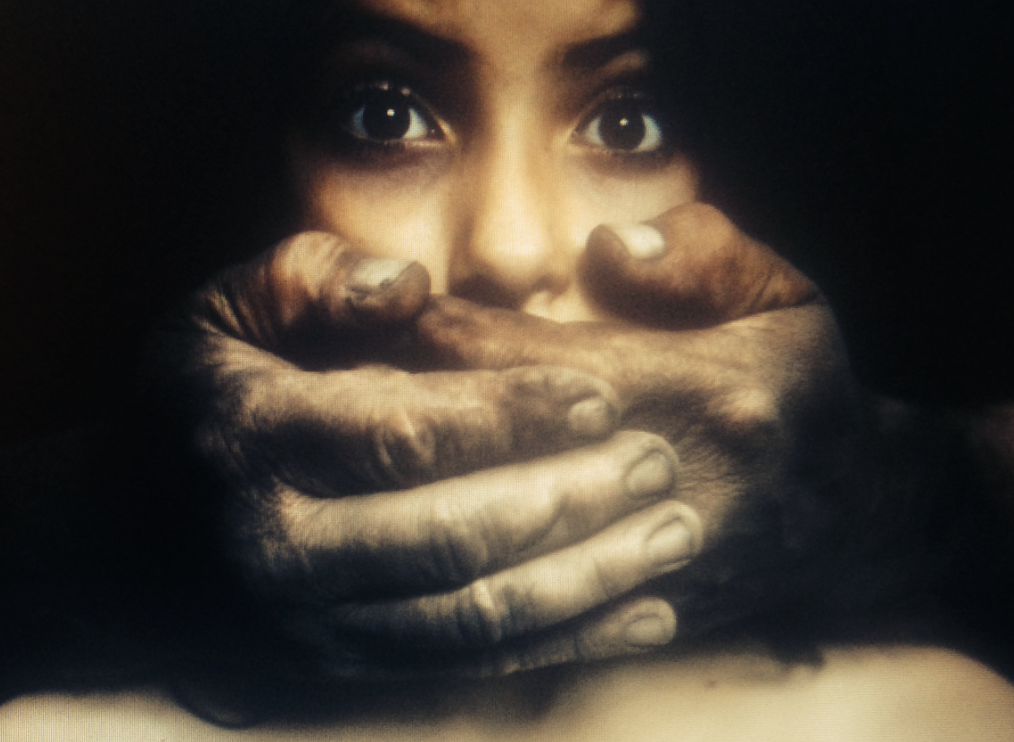“I feel it is an app that is very useful and something I need at the moment.”
What is ONRECORD?
The only way to prove what’s happened and win your case is to have good evidence. If you don’t make good records you will not be able to prove your case. ONRECORD lets you immediately make clear and detailed records, with the supporting evidence to prove it’s true.
The more you take responsibility for gathering your evidence, the better, whether you are acting in person or using a lawyer. It’s difficult, time-consuming, and expensive to ask a professional adviser to sort bits of information into a useful document. If there’s a lapse in judgement during this process, it can complicate things further. Take control. ONRECORD is the answer.

1. Upload Records
Make records on the mobile app or the website as soon as things happen and you are safe to do so. Attach supporting evidence and prove your location, time and date. Everything you upload is stored together securely to give the fullest picture of what happened and preserve its value as evidence.
Keep your records organised under unlimited headings and labels.

2. Create a Timeline
Search through your records using our calendar, map and timeline features. Select and download your evidence on our website. Everything you record is securely uploaded and stored in our database. Nobody but you can see it until you decide to share it.

3. Provide Your Evidence
You can allow someone you choose to access your evidence so that they can help you - it might be a lawyer, an advice agency or another professional you trust. Log in on our website to download your records in chronological order, with your attachments, to prepare statements, to use in court or to show to the police.
For Individuals Gathering Evidence

Collect and record vital evidence to make your case.
For Organisations Helping Clients

See how ONRECORD can help your organisation:
From Our Blog…
By posting advice, information and news, our blog will help you to deal with potential problems.
Giving a voice to those who are not heard
The ONRECORD app, by storing good quality and detailed evidence online, which can be securely shared with professionals, provides the best opportunity for anyone to penetrate the resistance to them being heard. There are plenty of powerful figures, such as those suppressing the information about child abuse on the British mainland and the Channel Islands, who will try to silence victims. In the end, though, being able to present your evidence clearly and share it securely is the most effective way of ensuring that cover-ups are uncovered and the guilty face justice.
The Family Court: Domestic Abuse, Coercive Control, Parental Alienation and False Allegations
Join us to learn more about the family court and its treatment of victims and perpetrators of abuse, coercive control, parental alienation and false allegations. Subscribe to our podcast channel and get reminders to know when we next publish.
The CAFCASS ‘Tool’ for Assessing Coercive Control
Coercive behaviour is defined as “an act or a pattern of acts of assault, threats, humiliation, and intimidation or other abuse that is used to harm, punish, or frighten their victim. Coercive control involves repeated, ongoing, intentional tactics which are used to limit the liberty of the victim, often using a sought after synonym for manipulation to further exert power and control over them."










